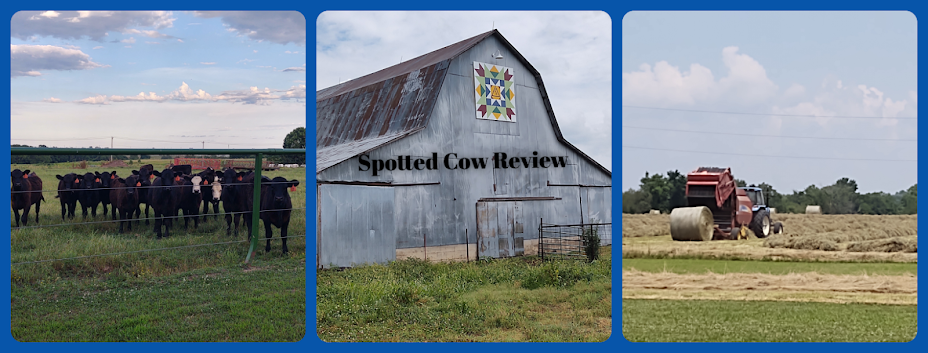The feed barn is one of my favorite places to be when
the cows come to eat after being milked.
They really seemed to be enjoying every bite this morning
and weren't a bit interested in what I was doing!
At the request of our dairy nutritionist,I was actually on a mission
to collect a sample of the feed they were enjoying.
Sampling the feed mix is done when we have added a
new or different ingredient to make sure the total mixed ration is balanced.
Making sure the cows have a nutritious and balanced diet
keeps them healthy and leads to high-quality milk.
Feed efficiency is extremely important to the sustainability of our farm.
Sustainability is not just a word, it's how our dairy farm family
has lived for generations, working to improve and
make life better for the next generation.
Since 1944 when my mother-in-law was milking cows on our farm,
dairy farmers across America are producing more milk
using 90% less cropland,
producing 76% less manure,
using 65% less water,
and producing 63% less carbon emissions.
All that has happened through innovation and efficiency improvements that
have been provided through research,sound science and technology.


.jpg)